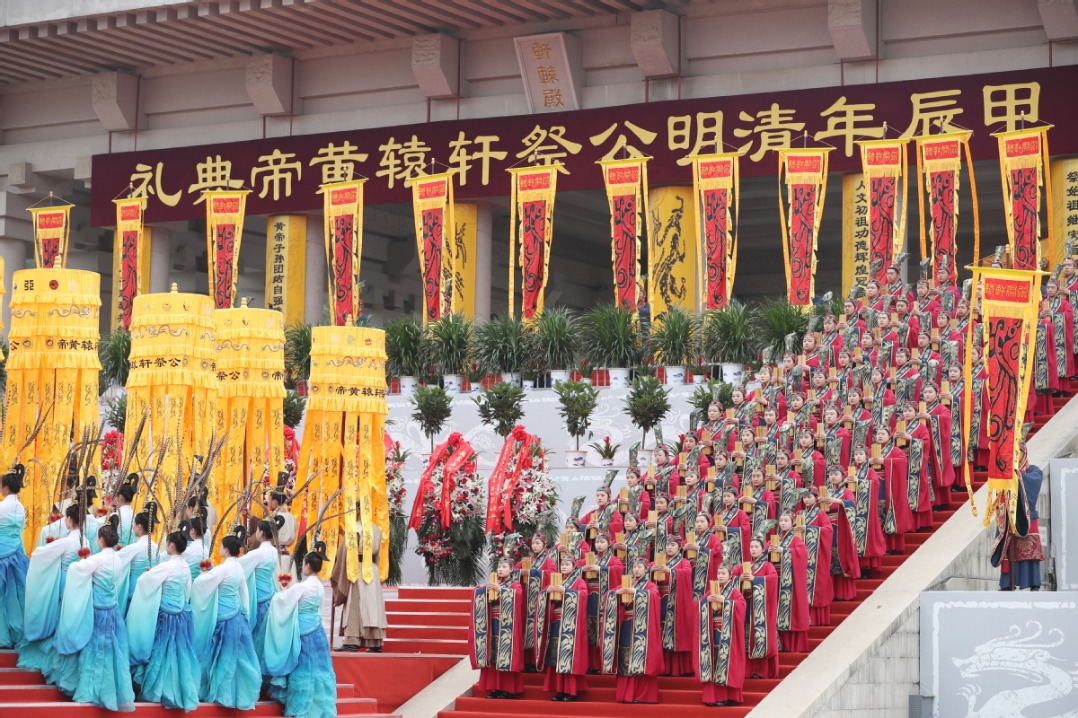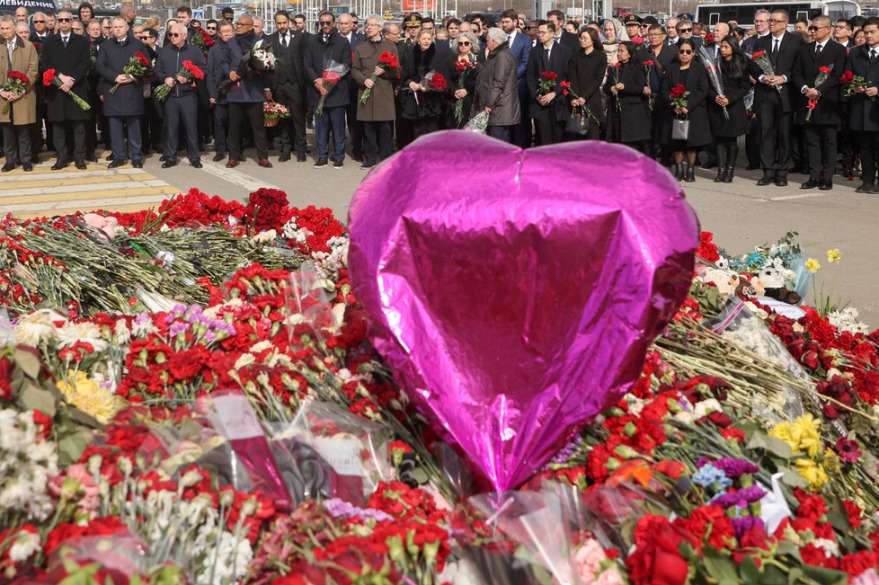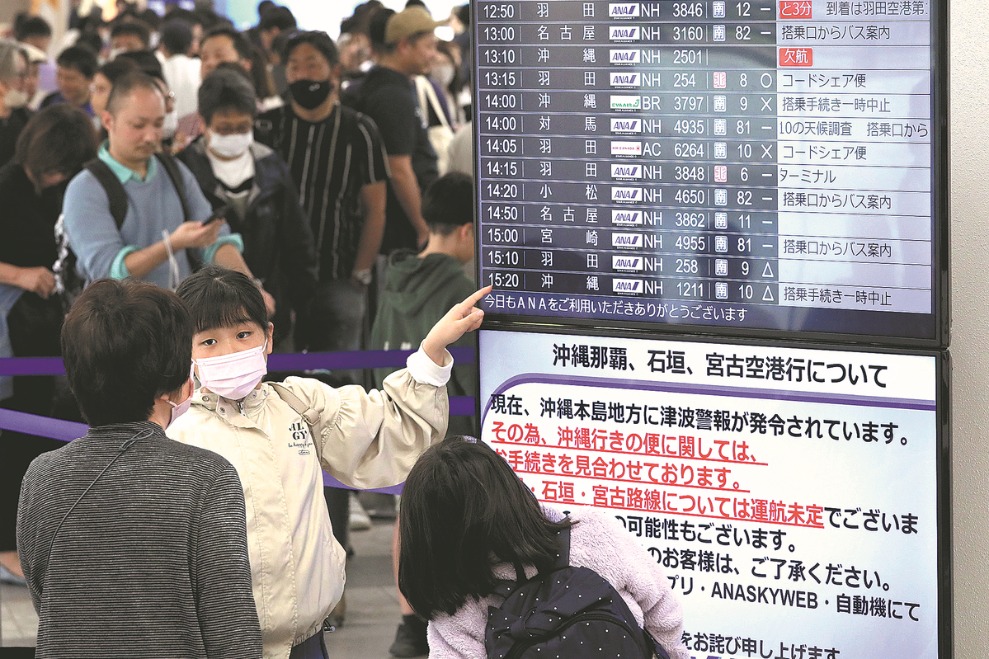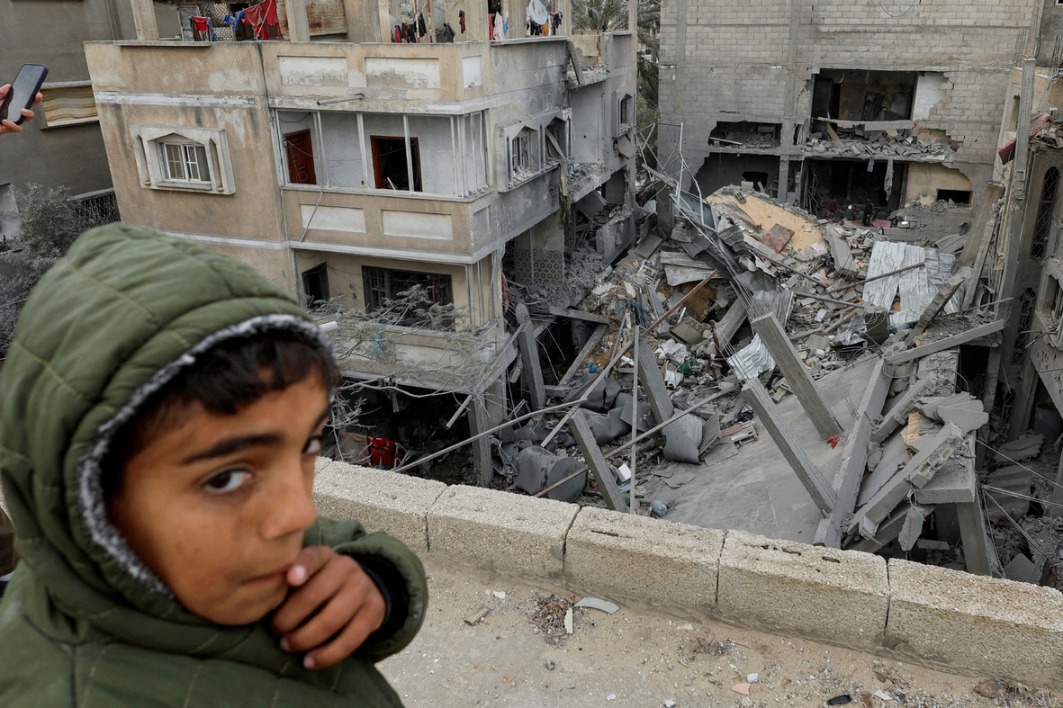Upcoming Israel poll shows changed views on Palestine issue
China Daily | Updated: 2020-03-02 10:11

JERUSALEM-Once, when Israelis headed to the polls, they were voting on a solution to the Israeli-Palestinian conflict, a straightforward but heated debate.
But as the stalemate in negotiations with the Palestinians continues, it seems there is no end in sight and nothing major will change.
"Israelis and Palestinians haven't sat in the same room in years," said Alon Liel, former director general of the Israeli Foreign Ministry.
"The public has reached the conclusion that negotiations aren't realistic and you can't talk about something that the public does not believe can happen."
Peace with the Palestinians is only on the agenda for few of the parties in the running. It does not resonate with most voters.
Ofer Zalzberg, a senior analyst at the International Crisis Group, said: "The last decade has increased the distrust between the peoples and it is very difficult to talk about resumption of negotiations."
With an election on Monday, a recent spark in violence between the Israelis and Palestinians in the Gaza Strip has brought the issue to the forefront, but temporarily.
Israelis were once traditionally divided into left and right. The left favored giving the Palestinians territories in the West Bank in return for cessation of violence, while the right wing was traditionally against any territorial concessions, saying the land the Palestinians covet for their future state is "historically Jewish "and should never be handed over to anyone else.
The Palestinians see the territories in the West Bank, the Gaza Strip and East Jerusalem as part of their future state.
"Today the camps are different," Zalzberg said. "Now there is one camp that favors annexation, and the other favors the status quo with a possible option for a Palestinian state in the future."
The two-state solution, which was once seen as the only solution to the conflict, has become almost redundant. The Israeli Democracy Institute and Tel Aviv University have been monitoring Israeli public opinion on the Israeli-Palestinian conflict since 1994.
In its latest survey conducted in January after the announcement of the elections and after the publication of the Donald Trump plan, 45 percent of Israelis said they believed Israel should recognize a Palestinian state. But in the breakdown of the data, there is less support for this within the right wing.
For the Prime Minister, Benjamin Netanyahu, the years of the Trump administration have been filled with lavish political gifts: the US recognition of Jerusalem as Israel's capital, the subsequent inauguration of the US embassy in the city, and the recent recognition of Israeli sovereignty over the Golan Heights.
The moves were highly controversial in the international arena but were greeted in Israel by the overwhelming majority of the population, again blurring the lines between the coalition and opposition.
The Trump plan, considered a favorable plan for Israel and slammed by Palestinians, was also perceived by the Israeli public as an election token for Netanyahu.
Xinhua
























